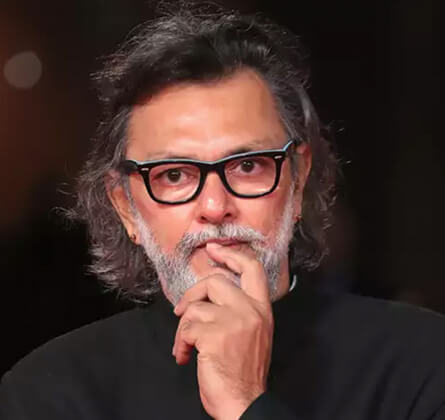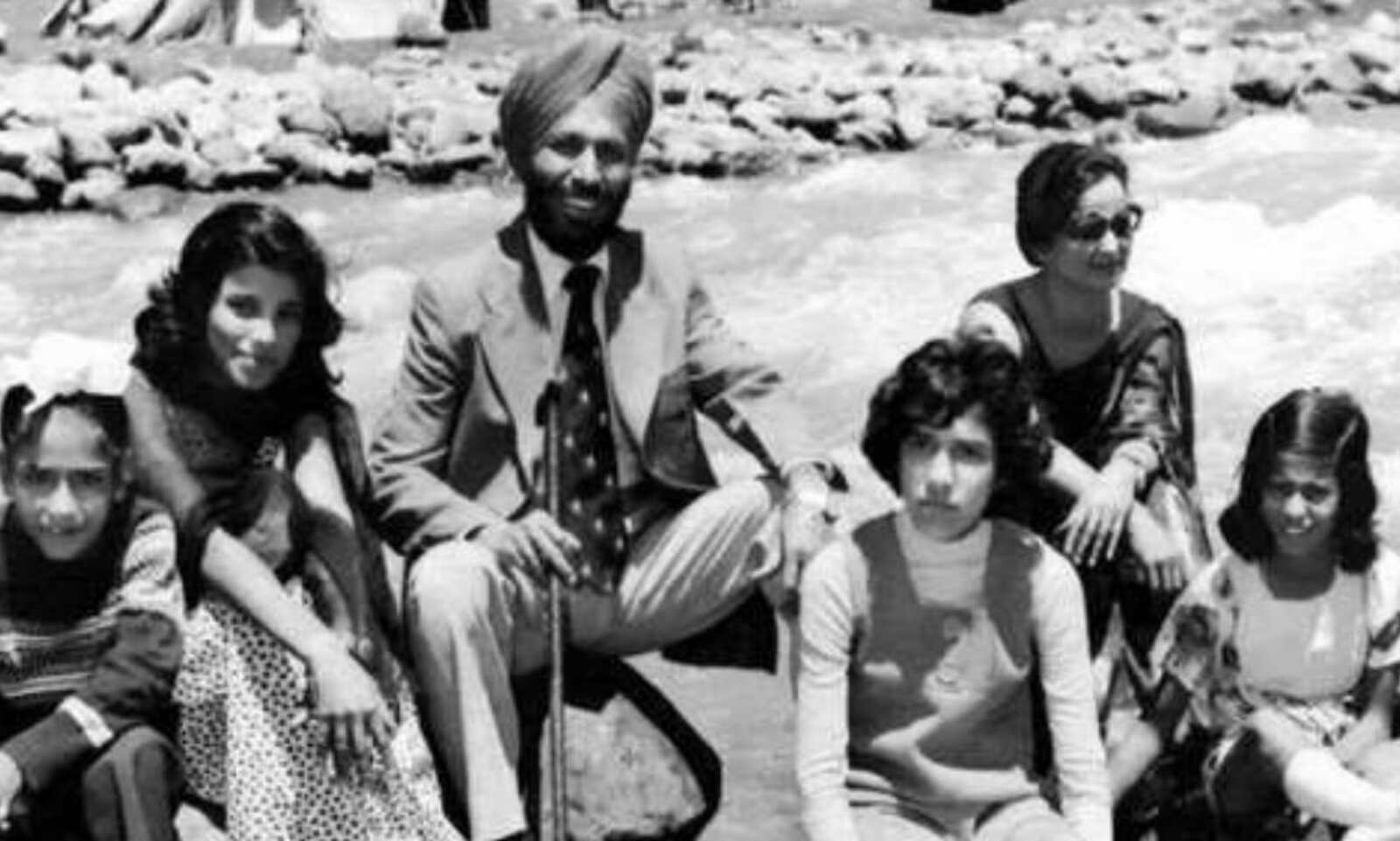"Bhaag Milkha Bhaag"

Rakesh Mehra
Biography
Rakeysh Omprakash Mehra is a director, writer and producer who established Rakeysh Omprakash Mehra Pictures (Romp) in India. Romp has cultivated in them an attitude to pioneer the way for the new wave and new age cinema from India, by identifying talent (writers & directors) from India and telling Indian stories to the world.
Rakeysh has written, produced and directed the film Rang de Basanti (Color of Sacrifice) (2006), with an ensemble of Indian and International cast. Rang De Basanti won 4 National Awards (President’s Medals), was India’s official entry to the Oscars 2006- 2007 It was also nominated by British Academy of Film and Television Arts (BAFTA) in the Best Foreign language film category 06-07.
Rakeysh went onto make Delhi -6 (2009) which is set against the backdrop of the caste and religious divide of the Indian social fabric. Delhi -6 has achieved tremendous critical acclaim and was an official selection at the prestigious Venice Film Festival . It won two National Awards (President Of India Medals). The Variety has termed it as un-bollywood , and “a step forward from Rang De Basanti , ushering an era of new age Indian cinema.”
In 2011, Rakeysh’s documentary film Bollywood: The Greatest Love Story (which was co-directed by Jeffery Zimbalist) was an official selection at the Cannes 2011 to celebrate 100 years of Indian Cinema. It is a docu feature, an avantgarde take on how Indian cinema has reflected the changing socio-political landscape since India got independence from the British Raj.
His film Bhaag Milkha Bhaag (2013) was set in the backdrop of when India gained freedom from the British in 1947, and the bloody ethnic violence that led to the massacre of thousands and the displacement of millions. This story is about the triumph of the undying human spirit, based on the life of the greatest Indian Olympian Milkha Singh , also known as “The flying Sikh”. The film made a clean sweep at all the popular film awards in India, including two National Film Awards (President of India Medals).
Mirzya – (2016) which is a contemporary take on the legend of Mirza-Sahiban, a tragic love story told as a musical spectacle premiered at the London Film Festival. It was showcased at Chicago Film Festival , Busan Film Festival etc.
He has recently finished his latest project named ‘Mere Pyaarey Prime Minister’ which is under post production and due to release Summer of 2018. It is the story of an 8 year old boy’s desire to build a toilet for his mother.
Rakeysh is also producing the under production film ‘Fanney Khan’, starring Anil Kapoor, Aishwarya Rai Bachchan and Rajkumar Rao. It is also expected to release by Summer of 2018.
From the beginnings that saw him orphaned and displaced during the partition of India, Singh became a sporting icon in the country. In 2008, journalist Rohit Brijnath described Singh as “the finest athlete India has ever produced”. He was disappointed with his debut performance at the 1956 Melbourne Olympics. “I
returned to India, chastened by my poor performance in Melbourne. I had been so excited by the prospects of being part of the Indian Olympics team, but, hadn’t realized how strong and professional the competition would be. My success in India had filled me with a false sense of pride and it was only when I was on the track that I saw how inconsequential my talents were when pitted against superbly fit and seasoned athletes. It was then that I understood what competition actually meant, and that if I wanted to succeed in the international arena, I must be prepared to test my mettle against the best athletes in the world.”
Then he decided to make sprinting the sole focus of his life. “Running had thus become my God, my religion and my beloved.” “My life during those two years was governed by strict rules and regulations and a self-imposed penance. Every morning I would rise at the crack of dawn, get into my sports kit and dash off to the track, where I would run two or three miles cross-country in the company of my coach.”
Summary

The film starts in the 1960 Summer Olympics in Rome, in which Milkha Singh is competing in the 400-metre. His coach yells “Bhaag Milkha Bhaag!” (“Run, Milkha, run!”), and Singh is suddenly taken back to the memories of his childhood which haunt him, resulting in him dropping to fourth place. His memories are full of the chaos surrounding the 1947 Partition of India, which resulted in mass religious violence in Punjab and the killing of Singh’s parents. The flashback shows Singh reaching Delhi alone, where he later meets his sister. Living in impoverished refugee camps, Milkha makes friends and survives by stealing with them. Now grown up, he falls in love with Biro, who asks him to live a life of honesty.
Milkha soon finds himself in the army. There, he wins a race in which the top 10 runners are rewarded milk, two eggs, and are excused from fatigue duty; his running skills are noticed by a havaldar (sergeant). He gets selected for service commission, where he is miffed. On the day before selection of the Indian team for the Olympics, Singh is beaten up by senior players whom he had defeated earlier. Despite being injured, he participates in the race and overcomes his pain; he wins the race and breaks the national record. Proud of his achievement, Milkha goes back to Delhi to ask Biro’s hand in marriage. However, his friend informs him that Biro was married and left Delhi.
During the Melbourne 1956 Olympics, Singh is attracted to Stella, the granddaughter of his Australian technical coach. After a frolicking night in a bar, they have a one-night stand. The following day, he feels exhausted from the night’s activities and comes late to the training the next day. Following a song
– “Slow Motion Angreza”, where we see Stella and Singh becoming close, Singh loses the final race. He realises his mistake and, suffering from guilt, he even slaps himself in front of a mirror. On the flight back to India, he asks his coach what the world record is for the 400m race and learns that it is 45.9 seconds. A montage of tyre training in the cold desert of the Himalayas is depicted, wherein Milkha Singh pushes himself to the brink of absolute exhaustion. He subsequently enters the 1958 Asian Games with the hope of winning Gold for India. He then sees Abdul Khaliq, dubbed the “Fastest Man of Asia”. After Abdul wins his race, Milkha Singh approaches him to congratulate the victor. However, the Pakistani coach and his athlete shun and disrespect him. But in the 200m, he defeats Khaliq by a considerable margin. Moving to the Commonwealth Games, he wins another Gold in the 400m and is named “The King of England” by various newspapers. After celebrating his victory along with his teammates in the army, he burns the paper on which the time of 45.9 seconds was written, indicating that he was ready to break the world record of 400m. He finally achieves his life-long dream by breaking the 400m world record.
Invited by the prime minister of India, Jawaharlal Nehru, to lead the Indian team in Pakistan for a friendly race with Abdul Khaliq, Singh adamantly refuses to go due to the trauma of having to flee his home in the newly formed Pakistan as a child. The prime minister learns of Singh’s opposition but ultimately convinces him to go. Arriving in Pakistan, Singh misses the press conference and goes to his village where, in a flashback, it is shown how his parents were murdered and the last words of his father were “Bhaag Milkha Bhaag!”. He starts crying and is comforted by a boy who turns out to be the son of his childhood friend, Sampreet. He then meets Sampreet, who evidently survived the chaos of partition.
In the games, initially, Khaliq is winning, but Singh takes the lead after overtaking opponents one by one. Impressed how easily Singh passed the Pakistani athlete and won by a humongous margin, the president of Pakistan, General Ayub Khan, gives him the title of “The Flying Sikh”. Jawaharlal Nehru declares a day in the name of Milkha as a national holiday as requested by Singh himself. A final sequence of Milkha Singh is depicted where he is enjoying his victory lap and everybody in the stadium is in awe of what he has achieved. He sees his younger self running beside him, as the film ends.
